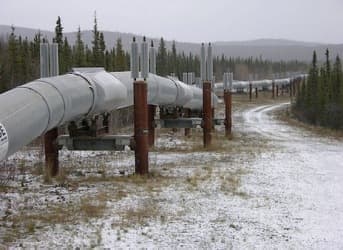Canadian Prime Minister Stephen Harper may be about to get tough on offshore oil developers and pipeline companies with legislation that could make them liable for billions of dollars in the event of an accident.
The rumor is that Harper’s cabinet is pouring over some major legislation that would go a long way to appease environmentalists who view the country’s laws governing the sector as far too lenient.
Speaking to Canadian media, Environment Minister Peter Kent went on record both to describe the potential new legislation as “significant” and that the current legislation essentially requires taxpayers to foot the bill for accidents that should be the responsibility of the oil and gas industry.
Here’s what the current legislation looks like:
• Offshore drilling companies have to pay a maximum of $40 million for cleanup in the event of a spill in the country’s north (assuming negligence is not proven)
• The maximum they have to pay in the rest of the country is $30 million
The problem with this, say critics, is that such clean-ups tend to cost much more than this, leaving the taxpayers to make up the rest.
The alleged legislation comes amid intensifying protests against major pipeline operator Enbridge (NYSE: ENB). Weeks of protests in Vancouver have coincided with hearings over Enbridge’s $5-billion Northern Gateway pipeline.
The Northern Gateway pipeline would deliver diluted bitumen from the Alberta oilsands to a tanker port in Kitimat, British Columbia.
A federal joint review panel was established to assess the environmental impact of the project, while hearings took place in Vancouver, Victoria, Prince George, Prince Rupert and Edmonton. Final results of the hearings will be revealed by the end of this year.
Amid these hearings, one would question whether vague news of “significant” legislative changes being reviewed is timed to appease protesters over Enbridge.
What environmentalists want is unlimited liability for oil spills and harmful leaks. The argument is that spills can never be entirely cleaned up. They will not get unlimited liability.
It all comes down to economics and environment—and never the two shall meet. Or shall they? There is one potential savior here: pipeline safety technology first inspired in space and now available—and more importantly—affordable. The latest in remote sensory leak detection systems could be the one thing that can mobilize both sides of this growing divide to reach consensus. It’s not the future. In fact, it is already commercially viable and it may be the big pipeline operators’ only way out of protests that will not go away any time soon.
ADVERTISEMENT
But there is something the environmentalists should also consider: The new plans for pipelines, whether it be Enbridge’s Northern Gateway or the equally beleaguered Keystone XL, courtesy of TransCanada (NYSE: TRP), should perhaps not be the key targets of everyone’s safety concerns.
Pipelines have only recently become a major topic of dispute, so the focus is on the new pipelines, when the real threat is the older pipelines.
By Charles Kennedy for Oilprice.com



















The BP fine four billion dollars is about equal to the revenue BP made every four days last year.
A $40 million cap is an incentive.